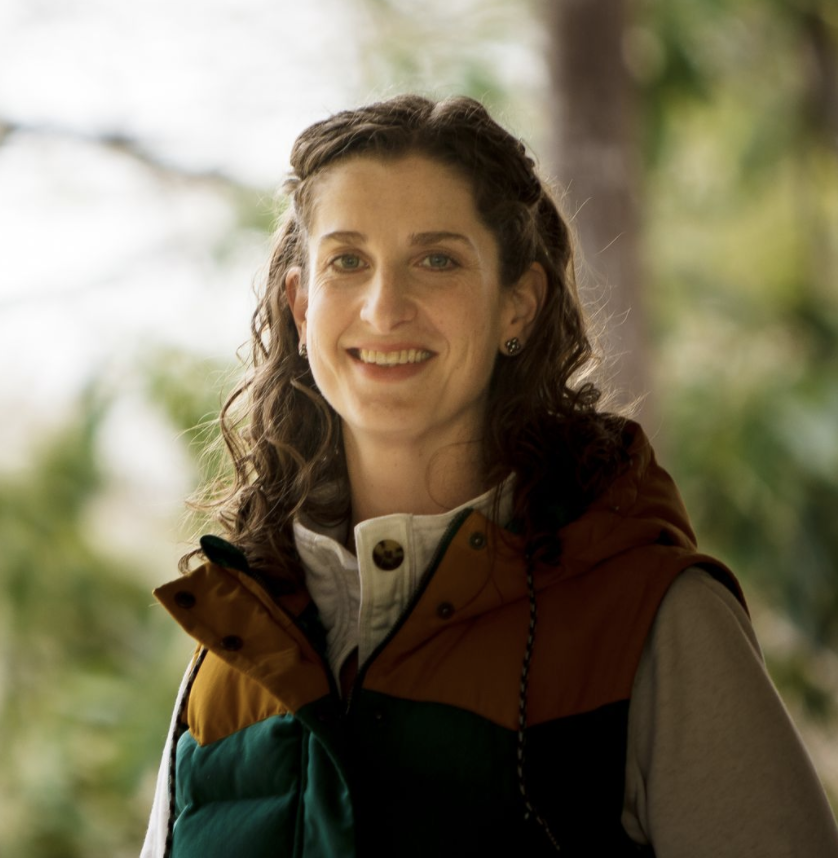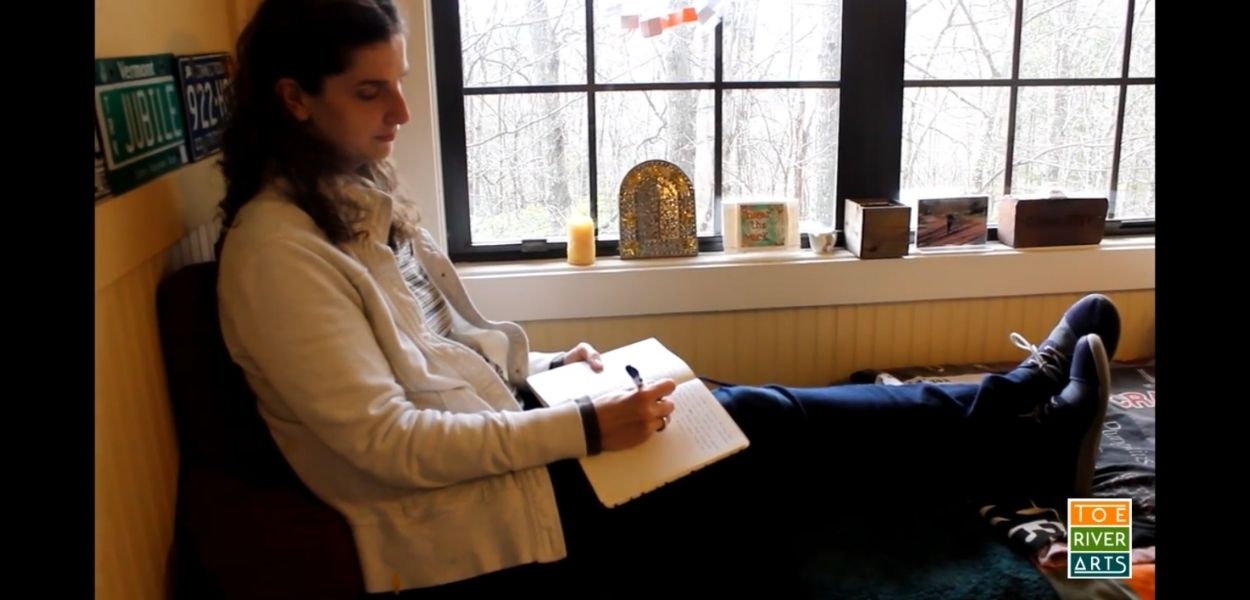The Writer’s Desk features the desks and writing practices of Gemini Ink faculty, visiting authors, teaching artists, volunteers, students, interns, staff, partners and more. Receive new posts in your inbox by subscribing to our newsletter at bit.ly/geminiinknewsletter.
Has your preferred place to write changed over the years?
I have always enjoyed writing near a window, if not several large windows, looking out into the forest. There is something about witnessing the changing seasons, getting to view both the micro and the macro (a hummingbird’s mating dance amidst the tulip poplars; a thunderhead rolling in) that inspires and relaxes me. From a purely physiological standpoint, it’s also more beneficial to have a way to gaze into the distance, a place to pace/walk around, and a way to sit/stand/stretch all while writing. With two walls of windows in my current studio, plus a standing desk and open floor space big enough for a yoga mat, any physical needs I have while writing and reading, can be easily met. This helps me contain any “literary restlessness,” a phrase I recently pondered with author and friend Anne-Marie Oomen, because I have no excuse to leave my studio. If I can keep the door closed but still move through space, and still experience the vastness of the natural world, I’m more likely to stay the course with a tough draft.
What is the one piece of writing advice that you value most?
I cannot narrow this down to one, but I can offer some thoughts in each category. First, for the writing life: Never believe the lie that in order to be a writer, you have to write every day. Second, for the practice of revision: Try writing into the page (vertically) rather than horizontal. That means, ask yourself questions to get under the under of what it is you’re actually trying to say. Do whatever it takes in order to learn how to do that, then become your own best coach step-by-step. Third, for endurance: Nurture hobbies outside reading and writing, that evoke your sense of play and wonder; this will naturally infuse your writing with greater ease and joy, as well as give you endurance for the tough times.
What’s a book or movie that you can watch over and over again and not get tired of?
Movie: Pump up the Volume. Book: Train Dreams by Denis Johnson.
What habit do you have now that you wish you had started much earlier?
I’m still working on this, but I think a huge part of living the writing life means learning how to be patient with one’s self as you discover your own best way in the world. What I mean by that is, as mentor/friend/author Helen Benedict once told me, “Your career doesn’t have to look like theirs.” Yes yes and YES!
If people want to learn more about your work, where should they go?
I really believe that there is no reason writers should make writing harder than it already is. To that end, I try to share free resources whenever I can, including pro bono consults, PDFs, or referrals to other professionals and organizations that can get a writer whatever it is they need. In short, I value meaningful, precise conversations with serious writers and in order to support those types of people, I created a resource page to encourage folks to become their own best editors, empower them with a few trusted tools, and open the door to a conversation with me if they’re curious to learn more. That can be found here: https://kateyschultz.com/writingresources/

Katey Schultz is the award-winning author of Flashes of War (stories) and Still Come Home (novel), both published by Loyola University Maryland. She is also the founder of Maximum Impact, a transformative mentoring program for creative writers that has been recognized by both CNBC and the What Works Network. Learn more at www.kateyschultz.com/writingresources.



